Dame Maggie Smith obituary: A formidable star on stage and screen
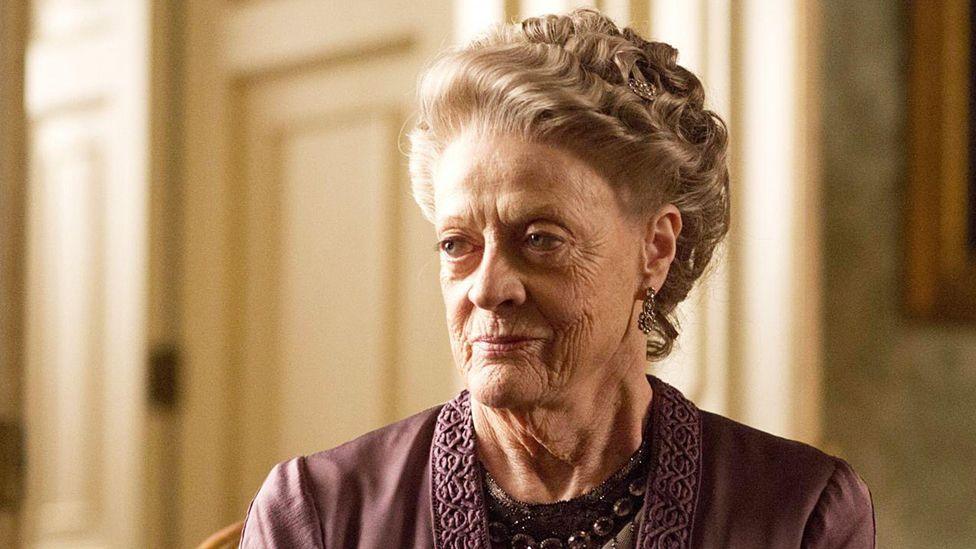
Dame Maggie Smith played the formidable Dowager Countess of Grantham in Downton Abbey
- Published
Dame Maggie Smith, who has died at the age of 89, brought an incredible range of expression to her roles, winning high praise from directors and fellow actors alike.
It was said of her that she never took a role lightly and would often be pacing around at rehearsals going over her lines while the rest of the cast was on a break.
In a profession notorious for its uncertainties her career was notable for its longevity.
She made her acting debut in 1952 and was still working six decades later having moved from aspiring star to national treasure.
Watch: Dame Maggie Smith reflects on her Harry Potter success (filmed in 2015)
Margaret Natalie Smith was born in Ilford, Essex, on 28 December 1934, the daughter of a pathologist.
With war looming the family moved to Oxford and the young Maggie attended the Oxford School for Girls.
She started out in the theatre as a prompt girl and understudy at the Oxford Repertory. She once claimed that she never got onto the stage while she was there because no-one in the company ever fell ill.
Her company moved to a small theatre in London in 1955 where she attracted the attention of an American producer, Leonard Stillman, who cast her in New Faces, a revue that opened on Broadway in June 1956.
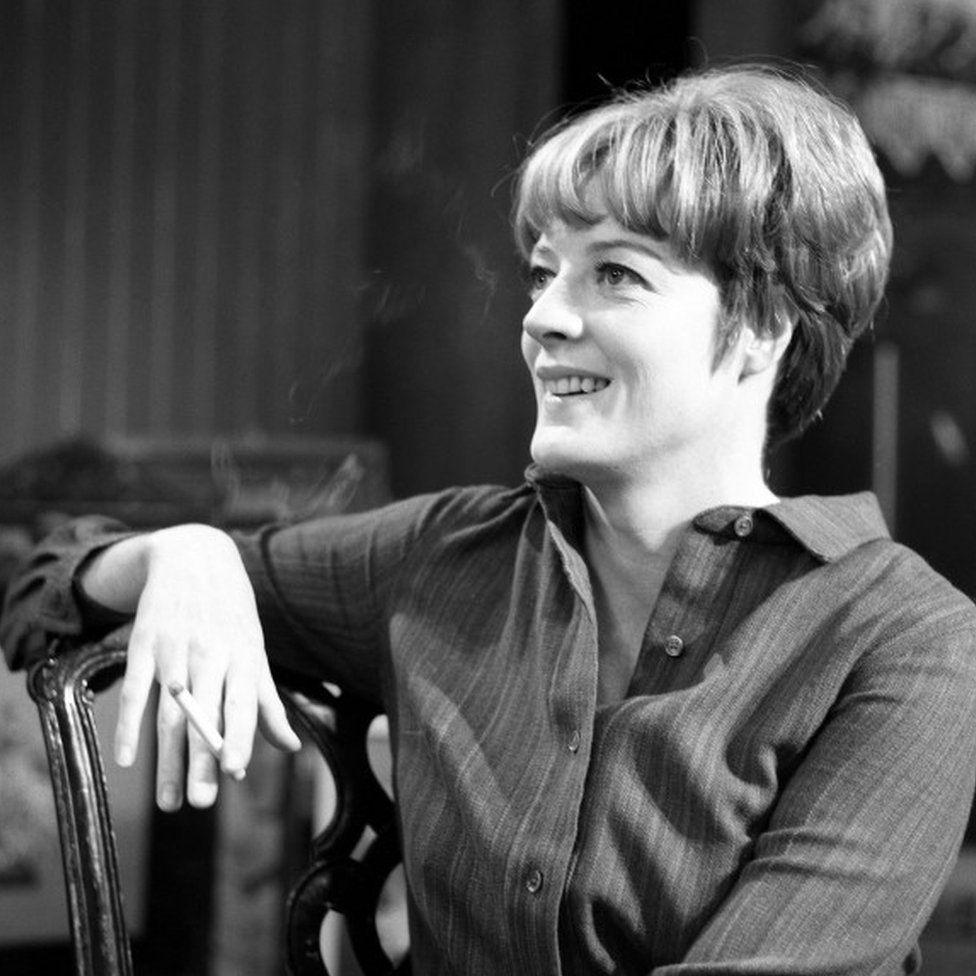
By the mid-1960s she was an established stage actress
She stood out among the cast of unknowns and, on her return to London, was offered a six-month stint in the revue Share My Lettuce opposite Kenneth Williams.
Her first film role was an uncredited part in the 1956 production Child in the House.
Two years later she was nominated for a Bafta as best newcomer in the 1958 melodrama Nowhere to Go, in which she played a girl who shelters an escaped convict.
The Times, describing her role in the hit London production of Mary Mary in 1963, said that she was "the salvation of this fluffy Broadway comedy".
First Oscar
She nearly stole the show from Richard Burton in the film The VIPs when she appeared in a pivotal scene with the Welsh star.
One critic noted that "when Maggie Smith is on the screen, the picture moves," and Burton afterwards teasingly described her upstaging of him as "grand larceny".
Later in 1963, Laurence Olivier offered her the part of Desdemona opposite his Othello, at the National Theatre. The production, with the original cast, was made into a film two years later, with Smith being nominated for an Academy Award.
The role which brought her international fame came in 1969 when she played the determinedly non-conformist teacher in The Prime of Miss Jean Brodie.
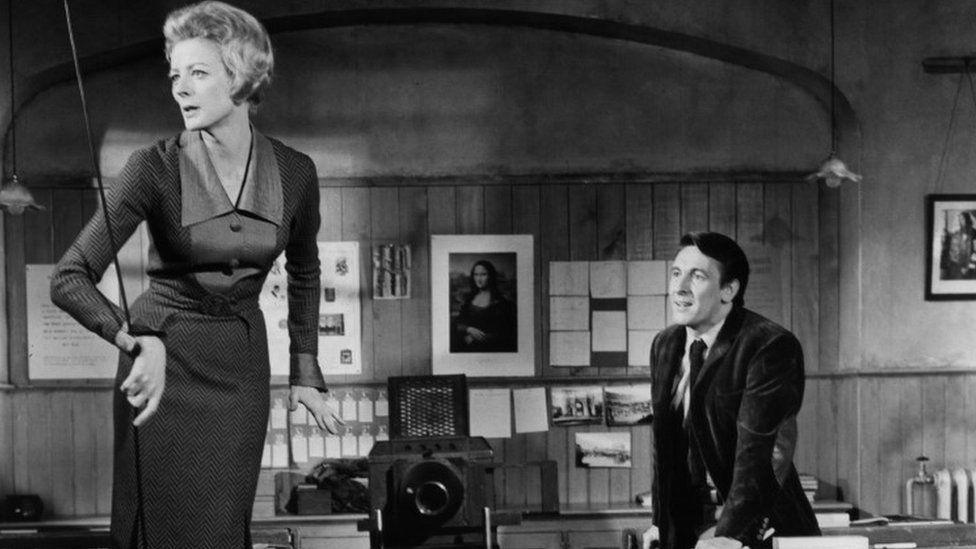
The role of Jean Brodie, alongside future husband Robert Stephens, won her an Oscar
The part won her a best actress Oscar.
She also married her co-star Robert Stephens.
The actress continued with the National Theatre for another two years including a performance as Mrs Sullen in the Restoration comedy The Beaux' Stratagem in Los Angeles.
She received another Oscar nomination for best actress after playing Aunt Augusta in the George Cukor film, Travels With My Aunt, in 1972.
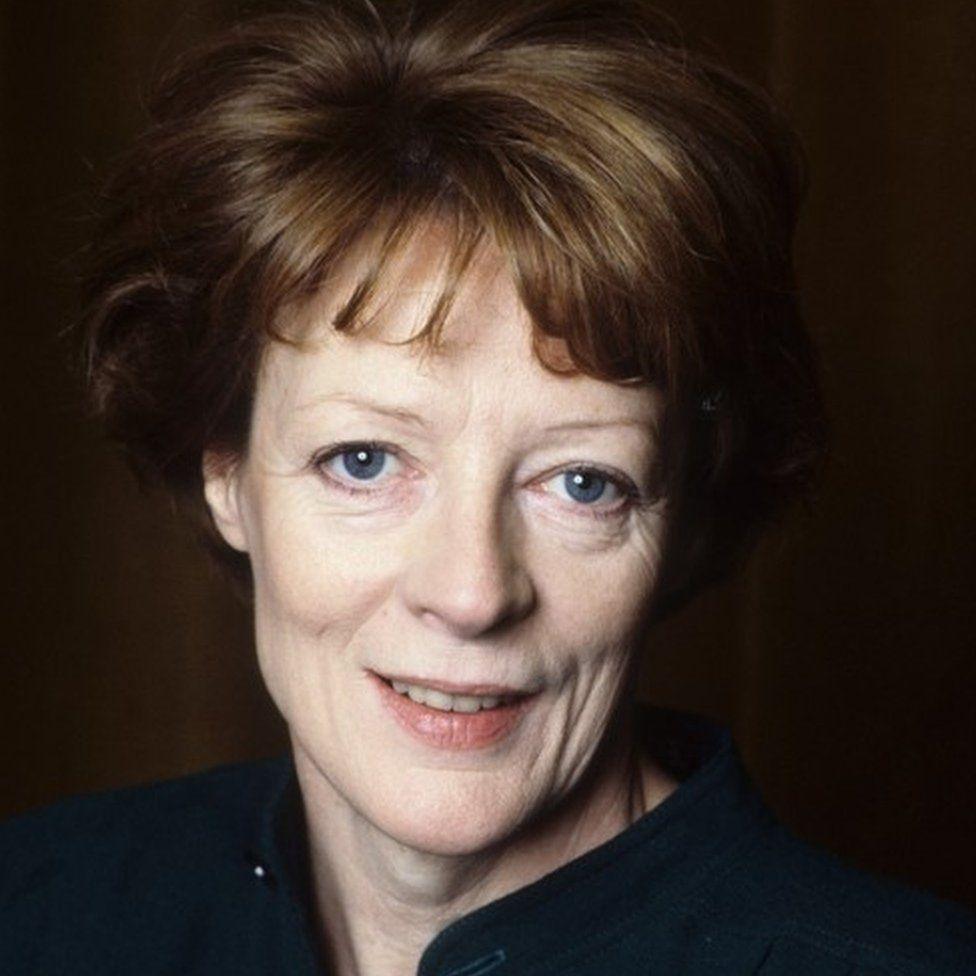
She and Stephens divorced in 1975, and a year later she was married to the playwright, Beverley Cross, and also moved to Canada and spent four years in a repertory company where she took on weightier roles in Macbeth and Richard III.
One critic, writing of her performance as Lady Macbeth, decided she had "merged her own vivid personality with that of her charismatic subject".
Despite her success she was modest about her achievements, stating simply that "One went to school, one wanted to act, one started to act, and one's still acting."
She continued to work in the cinema playing opposite Peter Ustinov in the 1978 film, Death on the Nile and, in the same year, the part of Diana Barrie in Neil Simon's California Suite.
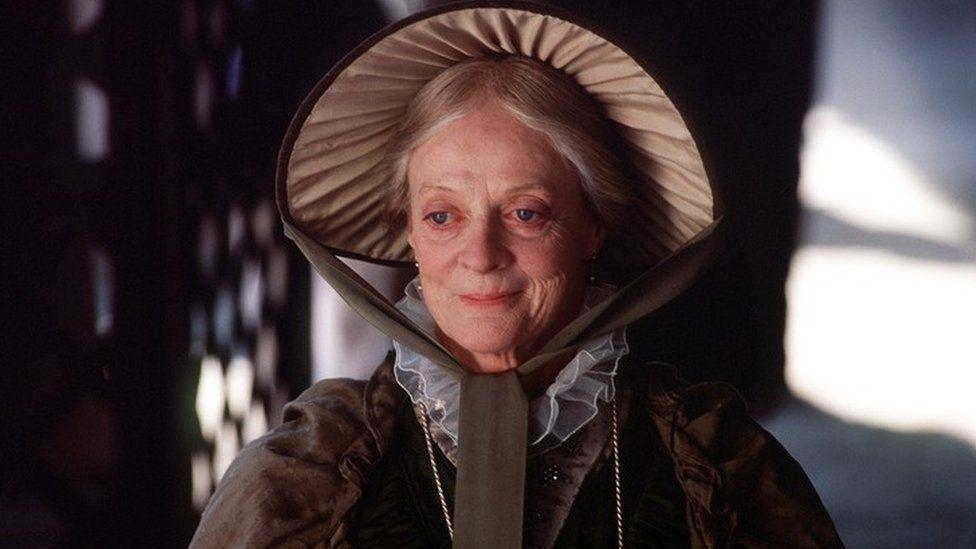
She won critical acclaim for her role as Betsey Trotwood in a BBC adaptation of David Copperfield
The 80s saw a number of memorable cinema performances, and more awards including Baftas for A Private Function and A Room With A View, the latter also garnering her a Golden Globe and an Oscar nomination.
There were more Baftas, first for her interpretation of the ageing alcoholic in The Lonely Passion of Judith Hearne and then in Bed Among The Lentils, one of Alan Bennett's Talking Heads series for the BBC.
It was back to the stage in 1987 in Lettice and Lovage at the Globe Theatre in London before the production transferred to New York. But her run was interrupted after she suffered a bicycle accident and then learned she would need eye surgery.
When she finally resumed work on Lettice and Lovage, after a 12 month break, her New York performance won her a Tony.
Harry Potter role
In 1990 she was created DBE and, a year later, appeared as the ageing Wendy in Hook, Stephen Spielberg's sequel to Peter Pan.
Other films followed including Sister Act, alongside Whoopi Goldberg, and The Secret Garden for which she was nominated for a Bafta.
The new century brought a Bafta and an Emmy nomination for role as Betsey Trotwood in the BBC production of David Copperfield.
A year later, she appeared as Professor McGonagall in Harry Potter and the Philosopher's Stone, a role she would reprise in all of the subsequent Potter movies.
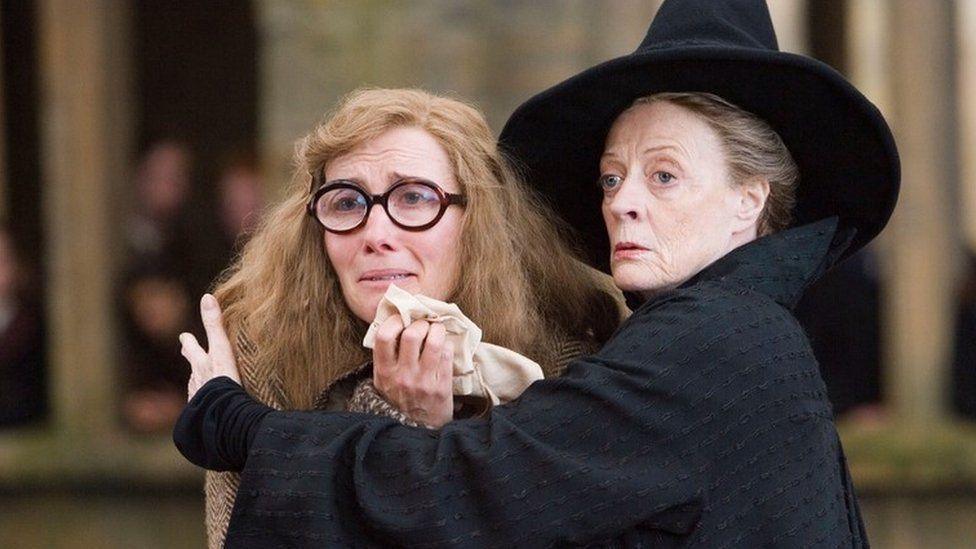
Her role in the Harry Potter franchise brought her to a new generation of film fans
She was, reportedly, the only performer the author JK Rowling specifically asked for, bringing a small touch of Miss Jean Brodie to Hogwarts.
In 2004 she appeared with her long time friend and fellow Dame Judi Dench, in the gentle drama Ladies in Lavender.
The New York Times decided that Smith and Dench "sink into their roles as comfortably as house cats burrowing into a down quilt on a windswept, rainy night".
Downtown put-downs
Two years later she was the cash-strapped Countess of Trentham in Gosford Park, Robert Altman's take on the English country house murder.
Her performance was a delight, with a veneer of snobbery from which would emerge the masterly put down, particularly in the case of Mr Novello's failed movie.
It was a role that she arguably reprised in all but name when she was cast in ITV drama, Downton Abbey. The name of her character may have changed to the Dowager Countess of Grantham but the performance was similar in essence.
"It's true I don't tolerate fools, but then they don't tolerate me, so I am spiky," she once said. "Maybe that's why I'm quite good at playing spiky elderly ladies."
She remained with the Downton Abbey cast until 2015 when the series finally came to an end, reprising the role for two films in 2019 and 2022.
In 2007, while filming Harry Potter and The Half-Blood Prince she was diagnosed with breast cancer. She was given the all-clear after two years of treatment.
Despite being left feeling weak after her illness, she went on to star in the final Harry Potter film and received a Bafta nomination for her role in the 2012 film, The Best Exotic Marigold Hotel.
In 2015 she gave a moving performance in the film, The Lady in the Van, based on the true tale of Mary Shepherd, an elderly woman who lived in a dilapidated van on the writer Alan Bennett's driveway in London for 15 years.
She had previously appeared in the stage version of the story, for which she won an Olivier for Best Actress, and a 2009 BBC Radio 4 adaptation of Bennett's play.
Dame Maggie gave few interviews but she was once asked to define the appeal of acting. "I like the ephemeral thing about theatre, every performance is like a ghost - it's there and then it's gone."